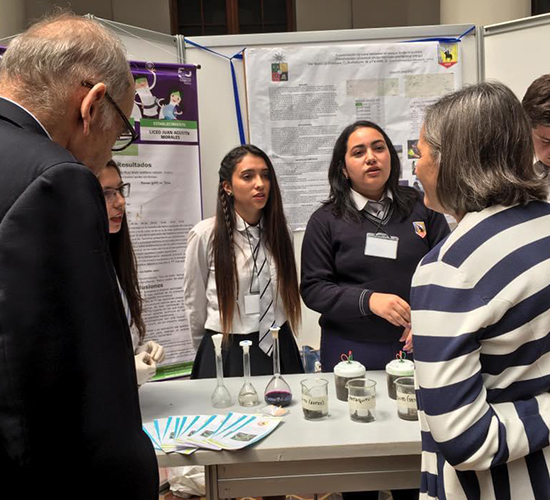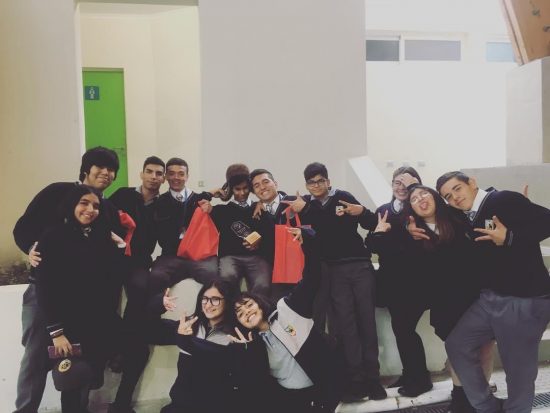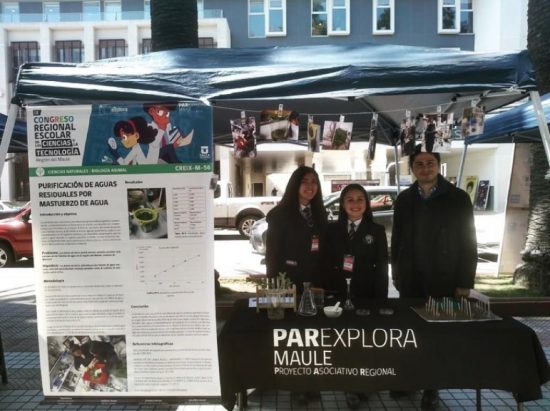Maule teachers will participate in the school science fair "Science and health care"

After a year of living in a pandemic, the way you work, study, entertain and life itself has taken a 180-degree turn. The children, girls, adults, animals and the whole of society at large have had to learn to live differently using technology even more and incorporating new ways of teaching and teamwork. During this time of pandemic, scientific knowledge became more important and today more than ever it is necessary to strive and prepare the generation of re-relief that will take care of new social problems, later.
School science fairs are part of this preparation and create spaces for rapprochement between the scientific community and the non-specialized public, allowing students to show society their work in various areas of science.
This type of activity promotes in students skills for research, expression and communication, strengthen the links between the school and the community, contributes to the dissemination of school scientific knowledge and enriches the relationship between peers and evaluator teachers, who make significant contributions to continue and deepen the proposals put forward.
Maria Alejandra Gonzalez, science teacher at Juan Agustín Morales González High School, told us about his experience participating in other science fairs and indicated that it is very important that young people can "learn, doing”, i.e. in the sciences you must experience, indeed and evidence not only keep the theoretical part that books give us, it is always better for young people to understand the nature of their environment and generate meaningful learning.
 Regarding the experience of Professor Maria Alejandra, told that for seven years he has been participating in community school science fairs, provincial, regional and national, adding that one of his main anecdote, was to go to a seminar in Linares organizing by the University of Talca and meet the National Prize of Natural Sciences 1992, Jorge Allende Rivera. "This led us to participate actively in the projects of its Allende Conelly foundation in conjunction with the University of Chile. They give us all the materials to carry out our scientific projects as, for example: "The study of the toxicity of medicinal plants in the development of zebrafish" or "The study of PGP bacteria in water deficit", among others.
Regarding the experience of Professor Maria Alejandra, told that for seven years he has been participating in community school science fairs, provincial, regional and national, adding that one of his main anecdote, was to go to a seminar in Linares organizing by the University of Talca and meet the National Prize of Natural Sciences 1992, Jorge Allende Rivera. "This led us to participate actively in the projects of its Allende Conelly foundation in conjunction with the University of Chile. They give us all the materials to carry out our scientific projects as, for example: "The study of the toxicity of medicinal plants in the development of zebrafish" or "The study of PGP bacteria in water deficit", among others.
"We must always take advantage of the circumstances, despite the difficulties we have to see them as opportunities and how Einstein would say learning is experience, everything else is information," said Professor Maria Alejandra.
On the other hand, Professor Maria Alejandra sent a message of encouragement to all and all students "we must always take advantage of the circumstances and despite the difficulties, we have to see them as opportunities and how Einstein would say learning is experience, everything else is information". I.e., all the experiences that can be lived through this type of online science fairs will be a great learning for everyone "be very creative, but always rigorous".
Professor Maria Alejandra, together with their students they have already enrolled in the scientific fair "Science and Health Care", organized by the Hospital de Santa Rosa de Molina and some of the projects they will develop are: the study of kalanchoe and eucalyptus in the diagnosis of diabetes and the study of PGP bacteria in the face of water stress and how these bacteria could contribute to this serious problem, the teacher reported.
"Product of effort at one of the science fairs where I participated with my students, we managed to earn twice a trip to Argentina, certainly an unforgettable experience for both them and me," Professor Karla Silva told.
 Another of the rewarding experiences is that of Professor Karla Silva, who performs at the Liceo Bicentenario de Molina and told us that he has previously participated in communal and regional scientific fairs organized mainly by the University of Talca and the Explora program "Experience is always positive especially for students, who from these initiatives have the ability to explore the world and respond to problems in their environment. Product of the effort at one of the scientific fairs where I participated with my students, we managed to earn twice a trip to Argentina, definitely an unforgettable experience for both them and me".
Another of the rewarding experiences is that of Professor Karla Silva, who performs at the Liceo Bicentenario de Molina and told us that he has previously participated in communal and regional scientific fairs organized mainly by the University of Talca and the Explora program "Experience is always positive especially for students, who from these initiatives have the ability to explore the world and respond to problems in their environment. Product of the effort at one of the scientific fairs where I participated with my students, we managed to earn twice a trip to Argentina, definitely an unforgettable experience for both them and me".
Regarding the development of virtual scientific fairs, Professor Karla commented that it is essential that students live these experiences and form experimental skills and abilities, stressing that it is important "DO NOT BE DEMOTIVATED, science can be built with little things, since observing, plan, meet… that is, you can do science wherever you are".
Scientific Fair "Science and Health Care"
Molina Hospital next to the Advanced Center for Chronic Diseases (ACCDIS), invites students to participate in the virtual fair "Science and Health Care", the activity is free of charge and is aimed at secondary-level students from public and private establishments belonging to the communes of Molina, Licantén, Hualañé, Curepto, Chanco, Romeral, teno, Sagrada Familia, Claro River and Curicó.
Interested students, will be able to enroll in areas of scientific research, technological or social responsibility solutions.
Registrations are currently open (here) and the deadline for project delivery is until June 18 this year at 18 a.m.:00 hours.
